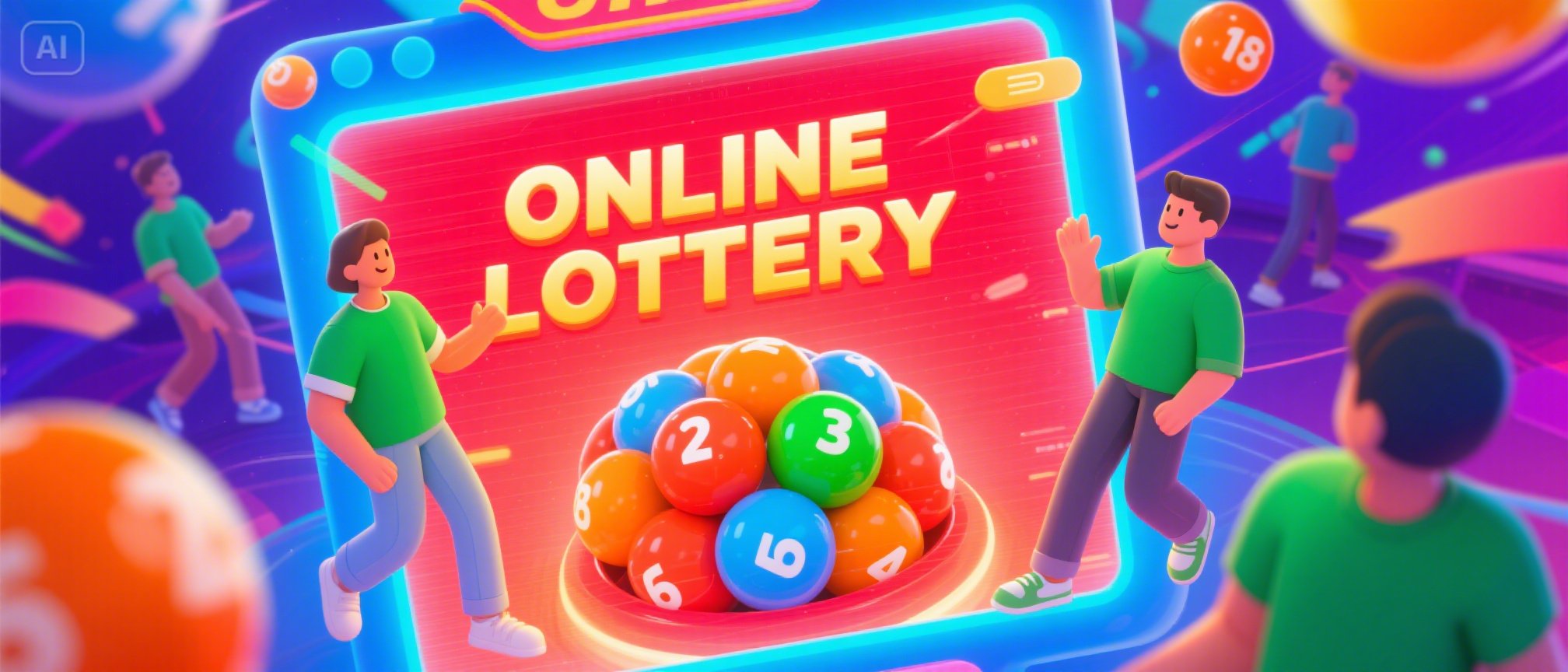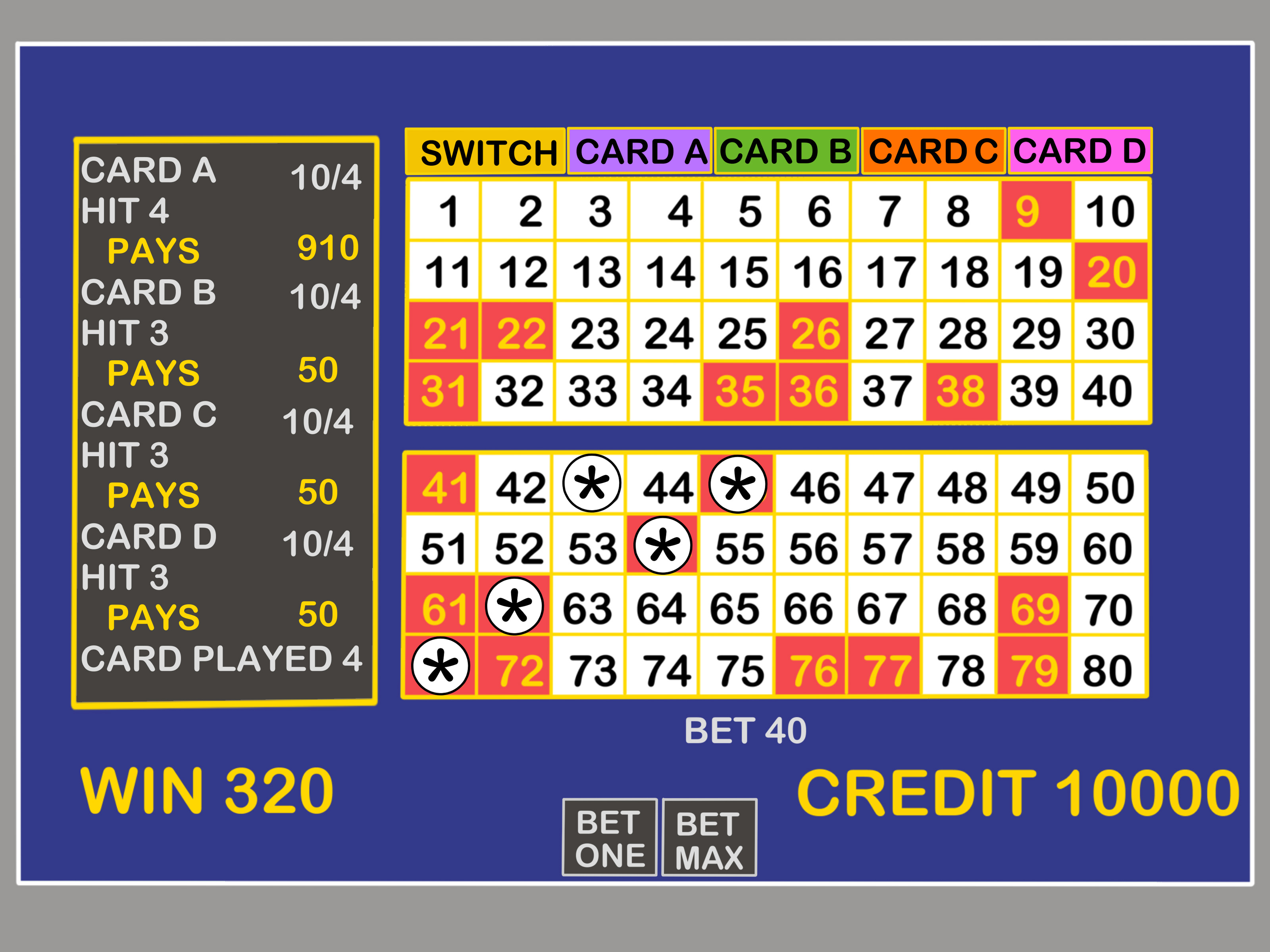The online lottery market is booming! In 2022, it was valued at a whopping $14.9 billion. That’s a lot of lottery tickets! And get this – experts predict the market will soar to $20.7 billion by 2032, growing at a rapid 7% yearly rate from 2023 to 2032. This explosive growth shows just how popular online lotteries have become worldwide. Lottery software companies are racing to grab a piece of this lucrative pie by revamping their approaches. Cutting-edge strategies like integrating artificial intelligence, secure payment gateways, and automated marketing are crucial for staying ahead in the fiercely competitive gaming and gambling scene, including sports betting and online casinos.
The History of Lottery Games
Online lottery started in the late 20th century, marking a big change from traditional lottery systems to digital platforms. The first online gambling law was passed in Antigua and Barbuda in the late 1990s, allowing the licensing of online casinos and setting the foundation for the growing online lottery industry. This legal shift was crucial, as it allowed regulated online gambling environments to be established.
The first online lottery game was launched by the Liechtenstein International Lottery in October 1994. This event introduced the global public to the possibility of playing lottery games over the internet. Following this, the first time the public bet money online was in 1995, when lottery tickets were purchased online, showing the rising trust and interest in digital lottery platforms.
Core Technologies Behind Online Lottery Systems
Let’s start with random number generators (RNGs). These mathematical marvels use incredibly complex algorithms to spit out completely unpredictable sequences of numbers. Many lotteries employ cryptographically secure RNGs that are virtually impossible to crack or manipulate. For instance, the Texas Lottery uses cutting-edge RNGs certified by leading testing labs to ensure each drawing is truly random.
On the security front, lotteries go all-out with advanced encryption protocols like SSL and TSL to safeguard sensitive data transmitted over the internet. The UK National Lottery website utilizes robust 256-bit encryption – the same level used by banks – to protect player details and transactions.
Speaking of transactions, major lotteries partner with trusted global payment gateways to facilitate secure purchases. Vendors like Worldpay, Boku and PayPal integrate seamlessly with lottery platforms, giving players a wide array of safe payment options tailored to their locale.
Blockchain is revolutionizing lottery transparency in mind-blowing ways. The Malaysian lottery BigWin implemented a blockchain-powered system that records every single transaction on an immutable distributed ledger. Players can actually verify draws and payouts themselves, eliminating any hint of manipulation.
Innovative ID verification methods are making online play more secure than ever. The French national FDJ lottery utilizes advanced facial recognition and ID document scanning to validate player identities and ages remotely but accurately.
Artificial intelligence is even getting in on the action! AI algorithms can analyze reams of data to detect signs of fraud, pattern addiction behaviors, and even forecast jackpot likelihoods. The future is here!
From military-grade RNGs to blockchain auditability to biometric ID proofing, online lotteries are leaving no stone unturned in pursuit of a secure, transparent and totally random experience. The tech powering this industry is simply mind-blowing!
Designing an Engaging User Interface
In the competitive online lottery systems landscape, designing an engaging user interface (UI) is key for attracting and keeping users. The UI should not only look appealing but also be intuitive and easy to use to ensure a smooth user experience (UX). Here are some key elements used in recent UI designs for lottery software:
Simple Navigation and Visual Appeal
Using the Navigator API 2.0 in Flutter has made navigation simpler, making it more intuitive for users to move through the app. A minimalist design approach was used, utilizing shades of green to convey depth and a luxurious mood. This choice not only enhances the visual appeal but also sets the tone for the user’s experience, suggesting a premium service.
Interactive Elements and Real-Time Features
To actively engage users, interactive elements such as a QR-code scanner for bonus points were integrated, adding a layer of interactivity and gamification. Real-time features like a timer showing the remaining time until the draw ends and the number of available tickets add urgency and excitement, encouraging more active participation. The inclusion of buttons resembling a steering petal for shifting gears in sports cars offers a unique tactile experience, making the interaction more memorable.
Consistency and User-Focused Design
Consistency in the user interface is crucial. The background and text blocks maintained a soothing white color, with subtle gradients from white to light gray to keep the interface light and accessible. Gold accents were strategically placed to convey luxury and highlight important features like the first-place prize. Moreover, the UX design was made more user-friendly compared to competitor platforms, focusing on ease of use and quick access to frequently used features like order repetition.
By focusing on these design elements, the UI for lottery systems can significantly enhance user engagement and satisfaction, ultimately contributing to higher user retention and increased ticket sales.
Integrating Security Measures for Safe Transactions
Secure transactions are very important in the development of online lottery systems. Here are some crucial steps to safeguard user transactions:
- Reputable and Secure Platforms: It is essential to choose platforms that use SSL technology, which encrypts data transmitted between the user’s system and the server, ensuring that personal and financial information remains secure. Reputable platforms follow strict security protocols and regulations, often employing advanced security features like two-factor authentication (2FA) to further protect user accounts.
- Secure Payment Methods: To maintain security, it is advisable to use secure payment gateways and avoid sharing sensitive financial information over unsecured networks or via email. Reputable online lottery platforms provide various payment options, offering flexibility and convenience while prioritizing security.
- Legitimacy of the Platform: Doing thorough research to confirm the platform’s credentials and legitimacy is critical. Reputable platforms are often licensed by relevant gaming authorities and are subject to strict regulations, ensuring they operate within legal and ethical boundaries.
- Responsible Gaming Practices: Setting limits on spending and time, and avoiding chasing losses or gambling with money intended for essential expenses are important aspects of responsible gaming. Most reputable online lottery platforms offer tools and resources to assist customers in managing their gaming habits responsibly.
- Awareness of Phishing Scams and Fraudulent Activities: Users should be cautious when clicking on links or downloading attachments from unfamiliar sources. Legitimate online lottery platforms will never ask for sensitive information through email or text message, helping to protect against phishing scams and fraudulent activities.
Cross-Platform Compatibility
Users Experience Multiple Platforms
Cross-platform compatibility is essential in the development of lottery games to ensure that users have a smooth and consistent experience regardless of the device or operating system they are using. This involves the use of advanced game frameworks and engines like Unreal Engine, Unity, Construct, and Phaser, which are designed to support the development of games that can run smoothly across different platforms. Regular maintenance and updates are also crucial to address any glitches, errors, or bugs that might affect the game’s performance across various platforms.
Benefits and Challenges of Cross-Platform Play
Allowing players on different devices and operating systems to play together opens up a whole new world of possibilities! Cross-platform play brings some amazing benefits to the table.
First off, it makes lottery games way more accessible to everyone. Whether you’re team iPhone or team Android, you can all join in on the fun without being left out. The Illinois Lottery app, for example, is available on both iOS and Android, helping create a huge multilayered player base.
This levels the playing field and creates a much bigger, more diverse community of players from all walks of life.
But it gets even better! With cross-platform, you can actually interact and compete against others using different devices than you. The hit game Jackpocket allows players on any smartphone or tablet to face off for huge jackpots. Talk about an engaging social experience!
And don’t forget longevity – cross-platform play helps keep games fresh and alive for way longer by constantly injecting new players into QR code mix. It’s a real game-changer (and money-maker) for developers. Pennsylvania Lottery’s online games have thrived by embracing this cross-play philosophy.
However, making this cross-platform magic happen isn’t as simple as waving a wand. Developers face some tough challenges to overcome. For one, there are technical limitations in making software run smoothly across different systems. When Georgia Lottery Corp launched their player accounts system, ensuring a consistent experience across web, iOS and Android was no easy feat.
Security is also a major concern when you open up that many gateways. The UK National Lottery had to get extra creative with advanced encryption to lock things down and ensure player data and transactions stay safe across all platforms.
Finally, offering a completely fair, balanced game experience for every single player, no matter of what device they’re on, is a tough nut to crack. The team behind Ontario Lottery and Gaming had to carefully assess and test to prevent any performance advantages or disadvantages based on hardware.
Strategies for Effective Cross-Platform Integration
Making lottery games work seamlessly across different devices and platforms is tricky, but developers have some clever tricks up their sleeves:
- Use Common Messengers (APIs): APIs are like messengers that allow different software to understand each other. Using common ones ensures core game functions work properly everywhere.
- Shape-Shifting Designs: Responsive designs automatically adjust the visuals to look perfect on any screen size or device. It’s like a game that can shapeshift!
- Cloud Power: Hosting games on the cloud makes it easy to connect players across platforms. Data and progress sync up in real-time like magic!
- Rigorous Testing: Developers thoroughly test games on all kinds of devices to identify and squash any bugs or issues specific to each one.
- Follow the Rulebook: Sticking to established cross-platform development rules helps ensure high quality, security and easy maintenance.
- Use Cross-Platform Wizards: Special tools like Unity allow creating one game that runs perfectly across multiple platforms with minimal extra work.
- Always Updating: Technology keeps changing, so developers constantly update and optimize their cross-platform solutions to use the latest advances.
By combining these clever strategies, lottery developers can ensure an incredibly fun and reliable experience for players, no matter what device they use!
Monetization Strategies for Lottery Games
In-App Purchases and Subscription Models
- In-App Purchases (IAPs): Players can enhance their gaming experience by purchasing virtual goods or currencies within the app. This model allows for continuous revenue as users buy various in-game items to progress or enhance their experience.
- Freemium Model: This approach provides the core gameplay for free, while additional content or premium features are available for purchase. This model can attract a large user base, with revenue generated from a small percentage of users who opt for premium offerings.
- Subscription Services: Offering players access to premium content, features, or perks on a recurring basis can create a steady income stream. This model appeals to dedicated players who are willing to pay regularly for enhanced experiences or exclusive content.
Advertising and Partnerships
- Advertising: Integrating different types of advertisements such as banner ads, interstitial ads, rewarded video ads, and native ads can generate significant revenue. Each ad format offers unique advantages and can be tailored to the behavior and preferences of the user base.
- Sponsorships and Brand Partnerships: Collaborating with brands, advertisers, or other developers can open additional revenue streams. These partnerships allow for the promotion of external products or services within the game, leveraging the lottery platform’s user engagement.
Advanced Monetization Techniques
- Casino Model: In this model, players bet an amount, and the winner takes a percentage of the total bet, with the game developer taking a small cut from each game played. This can be particularly lucrative in drawing high-stakes players.
- Data Monetization: By analyzing and monetizing user data, developers can not only enhance the game experience but also generate revenue. However, it is crucial to comply with user privacy laws to maintain trust and integrity.
- Microtransactions and Cosmetic Content: Direct content purchases, such as randomized content packs (loot boxes) or aesthetic enhancements that do not impact gameplay, provide additional revenue opportunities. These options allow players to customize their experience without altering game mechanics.
What is Next?
Throughout this exploration of lottery game development, we have navigated the vibrant history, technological advancements, user interface design strategies, and the vital importance of security and cross-platform compatibility in creating compelling online lottery systems. These discussions underscore the significance of marrying innovative technology with user-centered design to not only attract but also retain a dedicated user base. In doing so, we’ve highlighted the diverse monetization strategies that can fuel the growth and sustainability of lottery games, acknowledging the key role they play in sculpting a successful venture in the competitive landscape of online gaming.
As we look towards the future, it becomes evident that the continuous evolution in technology, coupled with a deeper understanding of the user experience, will chart the course for the development of online lottery systems. The potential for growth and innovation within this sector is immense, inviting developers and entrepreneurs alike to leverage these insights for the creation of more engaging, secure, and profitable online lottery experiences. This journey into the world of lottery game development not only emphasizes the complexities involved but also illuminates the path forward, marked by innovation, user satisfaction, and strategic monetization.









